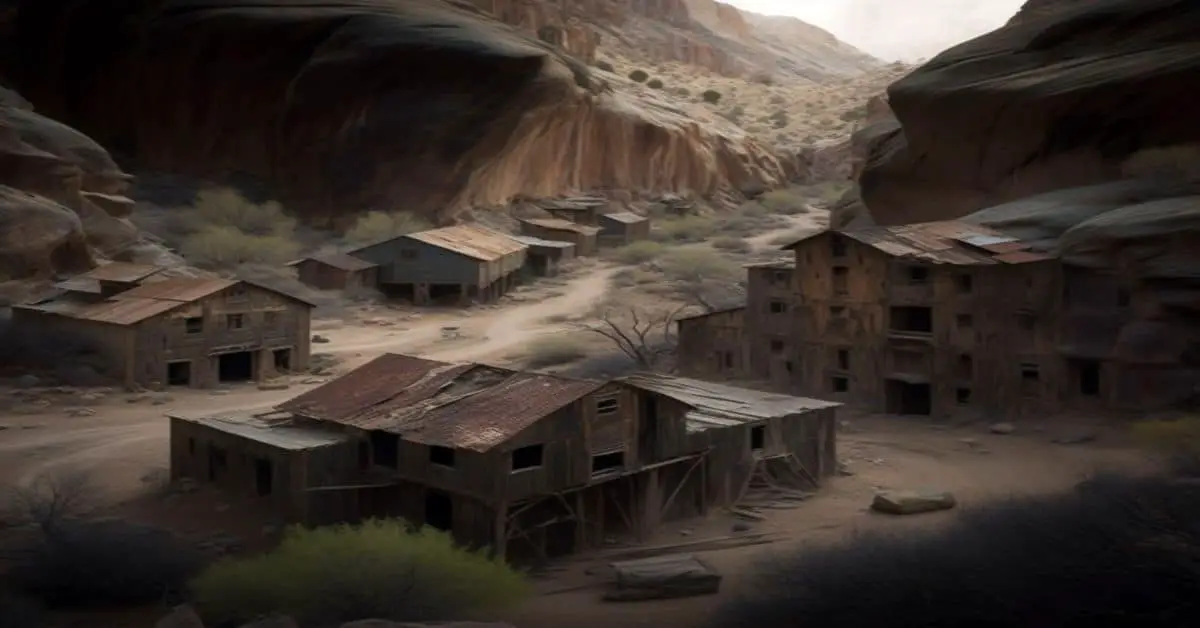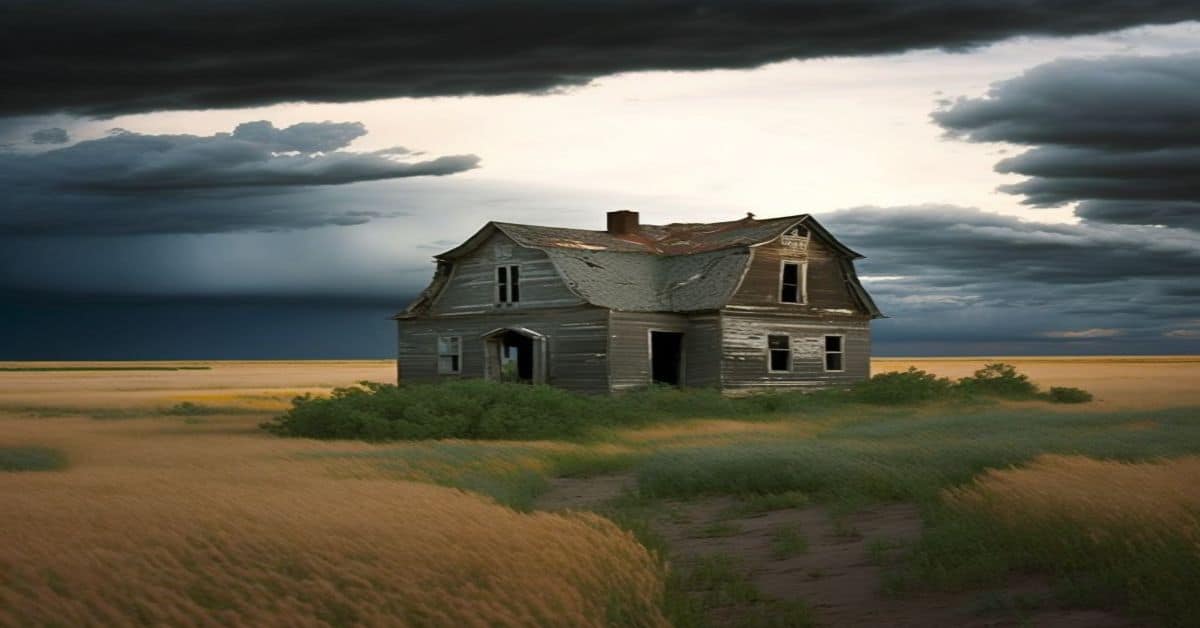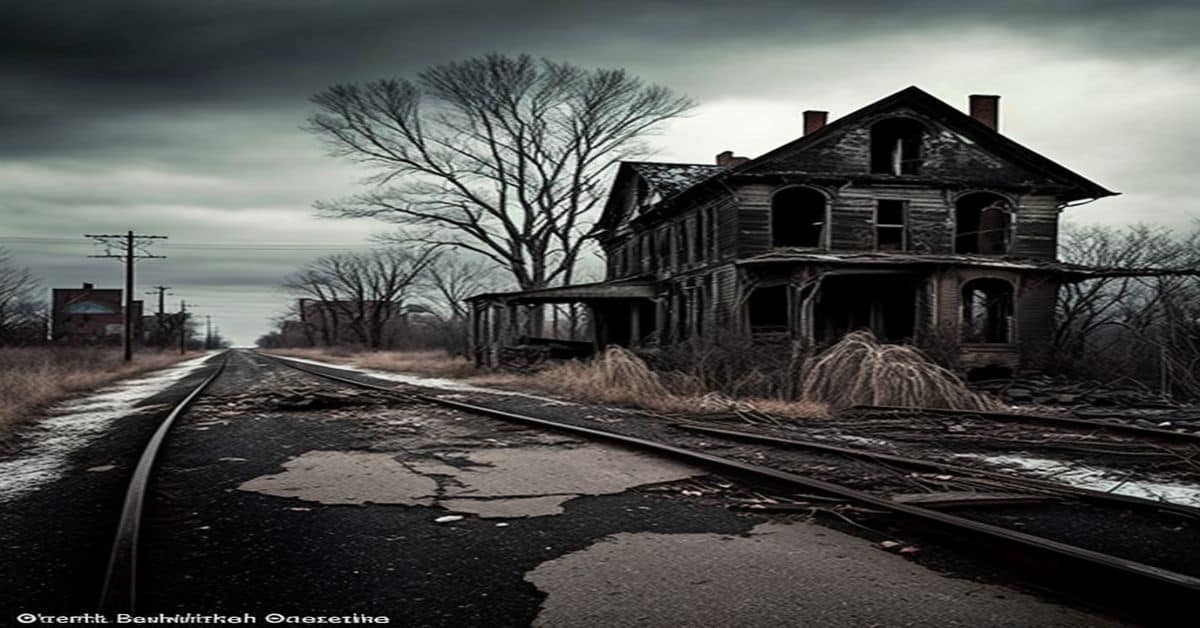Chalk Mountain, like a time capsule, is a place that holds within it the remnants of a bygone era. This small town, nestled in the heart of Texas, boasts a rich history and a mysterious allure that fascinates visitors today. With only a handful of occupied residences and many of its buildings reduced to nothing more than walls and roofs, Chalk Mountain is considered a ghost town, but it remains a true Texas treasure.
The history of Chalk Mountain dates back to before the Civil War, when it was a bustling trading center. In the 1870s, it became a town but its population dwindled to just 50 by 1910. Despite its decline, Chalk Mountain still stands as a testament to the past, with its two-story frame Masonic lodge, historical cemetery, and other remnants of its former glory.
In this article, we will explore the history and evolution of Chalk Mountain, the buildings and structures that still stand today, and the town’s current status. Join us on a journey through time as we discover the secrets of this Texas ghost town.
Key Takeaways
- Chalk Mountain has a rich history as a trading center and hub for cattle drives, trading, and chalk production in the late 1800s.
- The decline of the cattle industry and chalk production led to the town’s abandonment. Still, preservation efforts have been made to maintain some remaining structures, including the Masonic lodge.
- Today, Chalk Mountain is home to only a few occupied residences and the Chalk Mountain Wildlife Association, but draws visitors interested in its historical significance and natural surroundings.
- Key landmarks in Chalk Mountain include a historical marker at the cemetery and several other buildings, though some are fenced off with barbed wire.
History and Evolution
The history and evolution of Chalk Mountain as a trading center before the Civil War and settlement that became a town in the 1870s, but experienced a decrease in population to only 50 by 1910, is significant in understanding the development of this Texas ghost town.
Its location on the Chisholm Trail made it a hub for cattle drives and trading. The town was also known for its chalk production, which was used for writing, marking, and polishing. The economic significance of Chalk Mountain was evident in its growth and development during the late 1800s, but the decline of the cattle industry and chalk production led to the town’s eventual abandonment.
Notable events in Chalk Mountain’s history include establishing a post office in 1876, constructing the two-story frame Masonic lodge in the late 1800s, and the railroad’s arrival in nearby Stephenville in 1889. The Masonic lodge was a prominent building in the town and served as a meeting place for the fraternal organization. Today, it has been remodeled and is a private residence.
The decline of the town’s population can be attributed to the decline in the cattle industry, chalk production, and the lack of other economic opportunities. The history and evolution of Chalk Mountain serves as a reminder of the boom-and-bust cycles that many small towns experienced in Texas during the late 1800s and early 1900s.
“Chalk Mountain, on U.S. Highway 67 near the Somervell county line in southeastern Erath County, was named for a nearby elevation of white rock. Although the J. H. F. Skipper ranch, founded in the area in 1860, may have served as a prewar trading center, the community of Chalk Mountain was not itself established until later.”
https://www.tshaonline.org/handbook/entries/chalk-mountain-tx
Buildings and Structures
Several structures, including the significant two-story frame Masonic lodge, remain standing in this abandoned settlement of Chalk Mountain. The town’s architectural features are an important part of its history and offer a glimpse into the past.
While some buildings are nothing more than walls and a roof, the Masonic Lodge has been remodeled and reminds of the town’s former glory. Preservation efforts have been made to protect the remaining structures from further decay and destruction.
The Chalk Mountain cemetery has a historical marker, and some of the buildings are fenced off with barbed wire to prevent access. Despite the town’s decline, the remaining structures serve as a testament to the town’s history and offer a unique perspective on the architectural styles of the time.
Current Status
The town of Chalk Mountain has only about six occupied residences and is home to the Chalk Mountain Wildlife Association. The town’s population has significantly decreased since its heyday in the late 1800s and early 1900s. Many of the buildings and structures in the town are nothing more than walls and roofs, with some blocked off by barbed wire fencing.
Despite its small size and dwindling population, the Chalk Mountain cemetery has a historical marker, indicating its significance as a final resting place for the town’s former residents. Additionally, the Chalk Mountain Wildlife Association is located in the area, providing opportunities for outdoor enthusiasts to explore the region’s natural beauty.
While the town may be classified as a ghost town, its historical significance and natural surroundings continue to draw visitors to the area.
Frequently Asked Questions
What caused the population of Chalk Mountain to decrease so significantly from its peak in the 1870s?
The population of Chalk Mountain decreased significantly from its peak in the 1870s possibly due to the impact of railroads and natural disasters. Further research is necessary to determine the exact causes of the decline.
Are there any notable historical events or figures associated with Chalk Mountain?
Chalk Mountain holds some historical significance with notable figures and events but is not extensively documented. Local history tours and historical preservation efforts are absent, but some community members are involved in preserving history.
What is the town’s current economic or industry focus, if any?
Chalk Mountain has no clear economic focus due to its small population of about 6 occupied residences. Local attractions include the Chalk Mountain Wildlife Association and the historical Chalk Mountain cemetery.
Has the town been featured in any popular media or entertainment?
Chalk Mountain, a Texas ghost town, has not been featured in any popular media or entertainment. However, the town’s historical Masonic lodge and cemetery make it a potential tourist attraction for history enthusiasts.
Are there any local legends or ghost stories associated with Chalk Mountain?
No supernatural sightings or folklore traditions associated with Chalk Mountain have been reported or documented. The town’s history is primarily focused on its role as a trading center and its subsequent decline in population.


